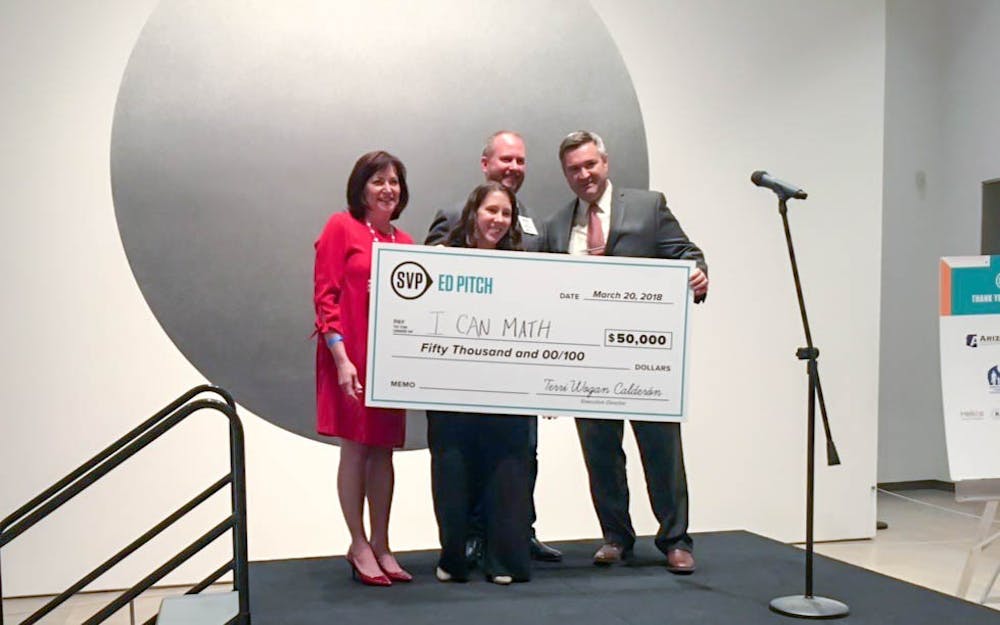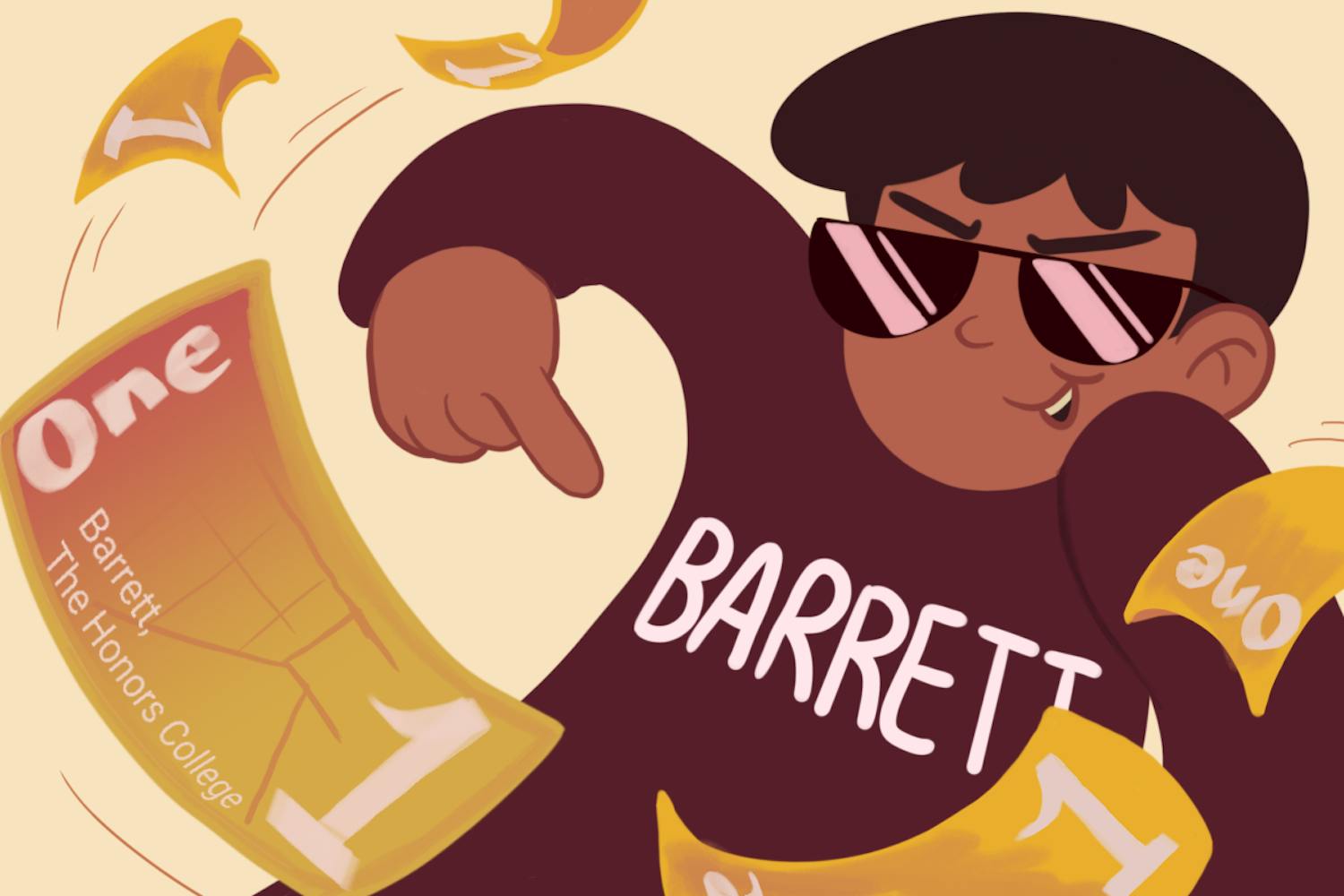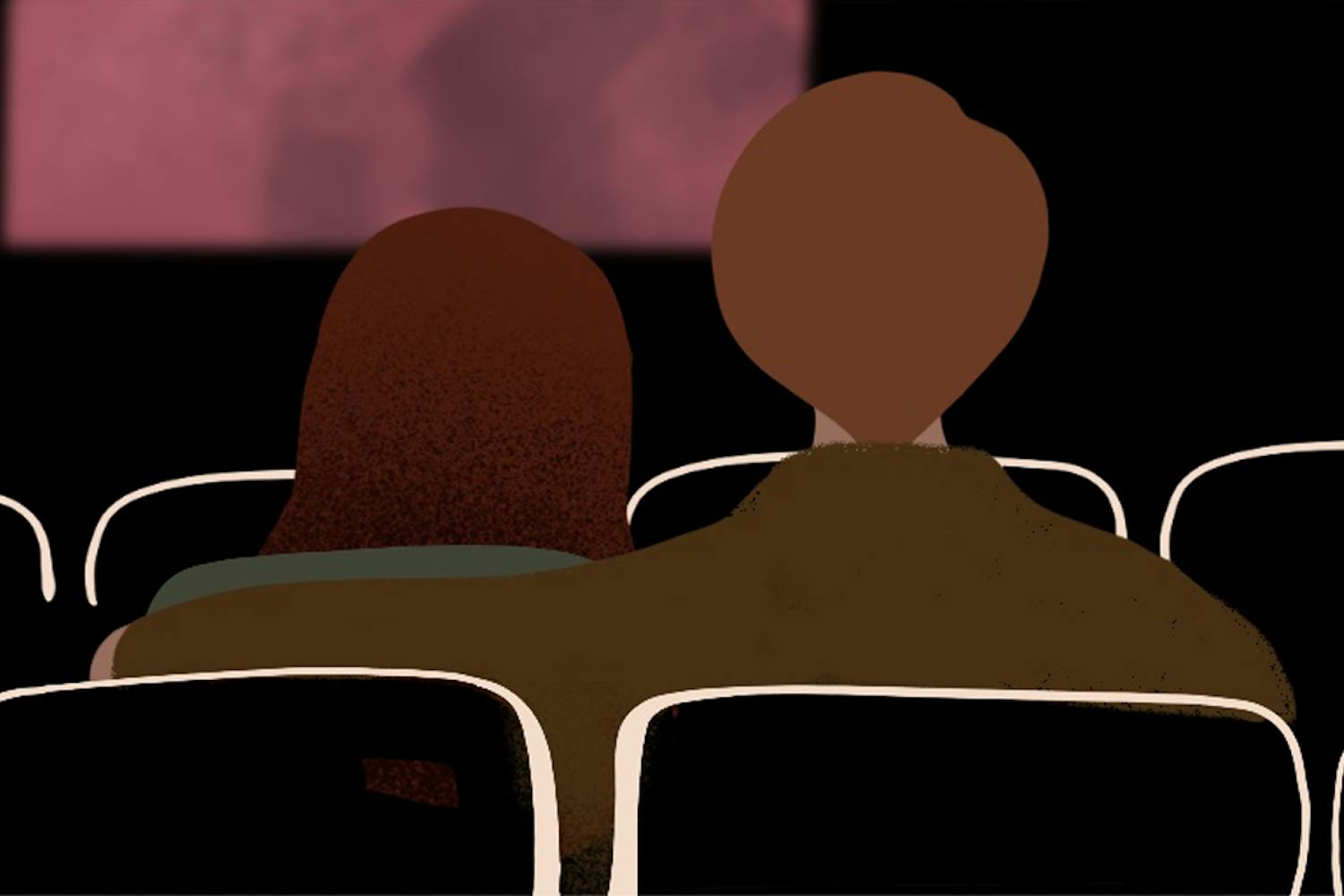A NAU graduate student won $50,000 in a competition in which Arizona college entrepreneurs pitched their education companies to local investors.
Social Venture Partners, a group that invests in non-profits and entrepreneurs, hosted a competition called Ed Pitch at the Phoenix Art Museum on Tuesday, providing a platform for college entrepreneurs to pitch their ideas on how some of Arizona's education problems could be fixed.
The five final groups had students from ASU, NAU and Paradise Valley Community College.
Amanda Gryzkewicz, an education graduate student at NAU, won the competition with her idea, “I Can Math,” which focuses on improving math literacy in Arizona schools.
This idea came after she found out only 3 percent of preschool class time is spent learning math, while a much larger portion is spent on reading and literacy skills.
“To have a skilled workforce, we must provide math,” she said during her presentation.
She said the validation of winning the competition shows that others believe math is as important as she does.
“The validation shows that math is important,” Gryzkewicz said. “We have to treat it as an important subject. Typically, we don’t look at math until about third grade, because that’s when we start doing state testing. Then we don’t look at it again until about eighth grade. So it’s really important because by third grade, it’s already too late.”
Filiberto Vargas, a second-year master's student in secondary education at ASU who teaches high school students through Teach For America, won the audience vote and $5,000 for his company “Blended Learning."
His program offers students personalized online programs to help them work toward their strengths. The program involves four steps: accountability of the students, a database of lesson plans, a way to utilize student progress and integrating competition into the lessons.
“I think it’s just amazing that I was able to to transmit my message and have it come across to all types of people,” he said. “There were people ranging all the way from high school to 60- or 70-year-olds."
He credited Teach for America in helping him get this far.
“I think it gives you the leadership skills to go out and find solutions,” he said. “It’s getting better, but it is still very difficult to teach.”
Vargas said he will continue to try and change education in Arizona.
“I want to just improve the quality of education, starting in my own classroom and then trying to scale it forward,” he said.
Each of the five groups took home money at the end of the competition after the Burton Family Foundation decided to award the two empty-handed groups – both made up of ASU students – $5,000 each.
Alexandra Mooney, an elementary education freshman, and Cyrus Commissariat, a political science and history freshman, pitched a literacy project to help serve Native American communities in Arizona by partnering with the Boys and Girls Clubs of America and making workbooks to increase student creativity.
The other ASU group that participated in the event, led by Samantha Mooney, a justice studies junior, and Karis Felthouse, a 2016 political science graduate, hopes to increase the number of guidance counselors in Arizona by using retirees as mentors for high school students. The pair hopes these mentors will help more students in Arizona go to college.
Terri Wogan Calderón, executive director of SVP, said she was excited about the inaugural competition.
“These are the ideas that will be necessary to our future in 21st-century education,” she said.
The U.S. Census Bureau 2015 annual survey of school system finances ranked Arizona 49th in per-pupil public and secondary education spending.
Wogan Calderón said the company has a goal to make Arizona a top-10 state in education by the year 2030.
Shane Cox, the event's keynote speaker, has personal experience with this kind of competition and with education solutions. He was featured on a recent episode of “Shark Tank” where three investors bought into his company Qball, which makes a dodge ball with a built-in microphone.
Cox said the education market often has a hard time attracting investors because it is seen as difficult and unappealing.
“It’s not a sexy market, but it has impact far and beyond other markets,” he said.
Steven Seleznow, president and CEO of the Arizona Community Foundation, said education is paramount to success within the state.
“The voice missing is the most important — and that’s the students,” he said. “When young people have a voice, they can move a nation.”
Reach the reporter at ajhowar6@asu.edu and follow @andrew_howard4 on Twitter.
Like The State Press on Facebook and follow @statepress on Twitter.




